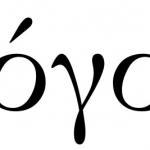A modern Psalm revealed in one of my favorites scenes:
The quietness of God, the problem of evil and suffering. It’s a timeless theme. We believe in a benevolent, all-knowing, all-powerful God, yet life often throws us harsh, cold, and cruel circumstances. Enter the free will response – God allows evil to allow free will. For good could not be good and love could not be love, if forced. But on the quietness of God, the supposed needless suffering of so many – the “greater good” churns inside of us. Certainly, if God is all-loving and all-knowing, “the greater good” explanation could hold weight.
But for how long?
Just a very brief survey through human history reinforces the paradox of the theme mentioned in I am Legend. Let’s replace the word “dark seekers” with the word “Nazis”. “God’s plan”? “Greater good”? Our tolerance of “the greater good” can only last so long. We eventually break down.
Perhaps better stated by the Psalmist:
“My God, my God, why have you forsaken me?
Why are you so far from saving me, so far from my cries of anguish?
My God, I cry out by day, but you do not answer, by night, but I find no rest.” (Psalm 22: 1-2)
The Holocaust, genocide, rape, slavery, all the unspeakable evils in the timeline of the human history…Earthquakes, hurricanes, squalls, tornadoes, volcanoes – natural disasters that have claimed the lives of so many… Disease, pain, depression – the suffering of the human condition…
It’s paradoxical, in the face of such evil and suffering, to find only the quietness of God. Supposedly an argument against God’s existence, I am finding it more and more it an inquiry as to God’s character. Knowledge of God’s existence is a rational enterprise of metaphysics and natural theology – the “greater good” is a logical explanation. What this “greater good” is, however, and the answer to “why?” question is way beyond our epistemological pay grades.
We’re all rational philosophers until the the Problem of Evil and Suffering knocks on our doors. Rational and emotional, as we are, it’s paradoxical. All the reasoned explanations of why God would allow such suffering and injustices are eventually exhausted. It eventually amounts to a decision: Will you trust Me?
It’s a timeless theme as it started in Genesis, continues the present day, and carries over into tomorrow. Perhaps it’s even more paradoxical that God incarnate said the very same words (Matthew 27:46) which bears pause as we move to consider a deep theological theme: The God of natural theology entered into human history and lowered himself to suffer to set forth a New Law – the leader becomes the servant.
For some of us, all of this is why we have a tough time believing in God. For many of us, this is why we fell in love with God. But the Psalm continues to churn within us. Why God? Where are You? We fall in love with God, we cry out, we fall in love once more. The Problem of Evil and Suffering is not only parallel in theme to the Trinity – it’s ultimately a convergence of the same theme. Paradoxical and mysterious, both are reduced to the same question: “God, please tell me about Yourself.”
Trusting. Inspired. Overwhelmed. Confused.
For the rest of my life.

















